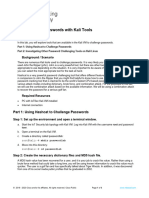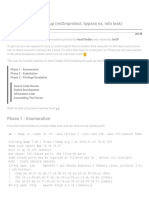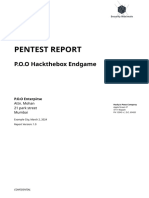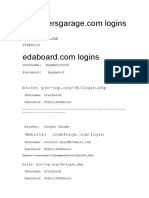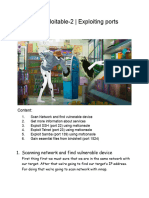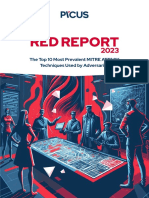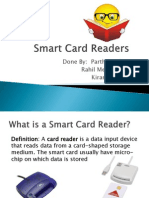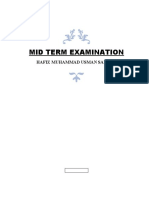0% found this document useful (0 votes)
234 views8 pagesAdvanced PowerShell Exploitation Guide
The document provides information on using PowerShell for post-exploitation activities like privilege escalation, lateral movement, and Active Directory enumeration. It covers basics of PowerShell, tools like PowerView, PowerUp, Mimikatz, and techniques such as pass-the-hash, Kerberoasting, and unconstrained delegation.
Uploaded by
assadasdCopyright
© © All Rights Reserved
We take content rights seriously. If you suspect this is your content, claim it here.
Available Formats
Download as PDF, TXT or read online on Scribd
0% found this document useful (0 votes)
234 views8 pagesAdvanced PowerShell Exploitation Guide
The document provides information on using PowerShell for post-exploitation activities like privilege escalation, lateral movement, and Active Directory enumeration. It covers basics of PowerShell, tools like PowerView, PowerUp, Mimikatz, and techniques such as pass-the-hash, Kerberoasting, and unconstrained delegation.
Uploaded by
assadasdCopyright
© © All Rights Reserved
We take content rights seriously. If you suspect this is your content, claim it here.
Available Formats
Download as PDF, TXT or read online on Scribd
/ 8

















